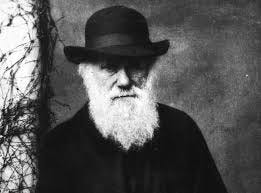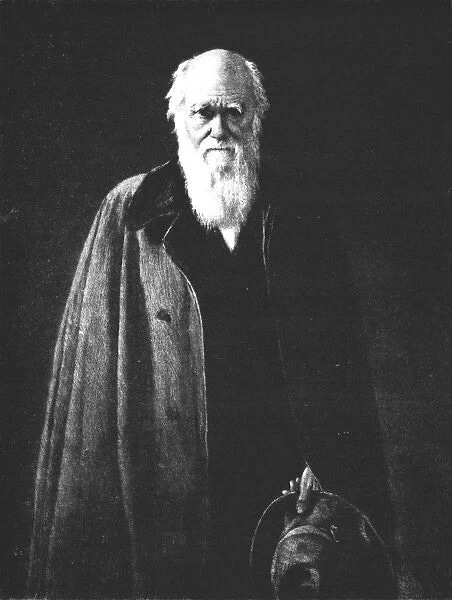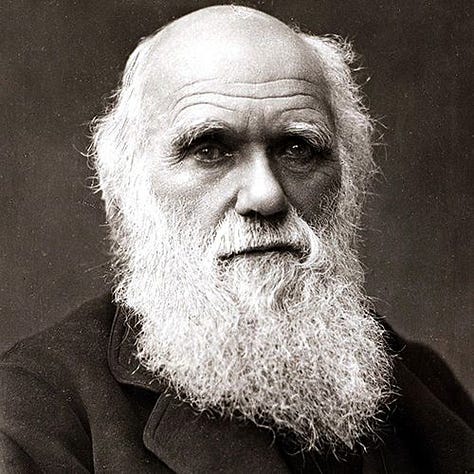I dare you to find a happy picture of Charles Darwin. Go ahead, Google “Darwin”, click “Images” and see for yourself. If his image wasn’t iconic, you’d think you were looking at photos of the founder of the Church of Satan, Dracula’s older brother, or the world’s most dangerous psychopath. Virtually every rendering of Darwin is dark, ominous, and menacing.



Religion has not been too kind to Charles Darwin, and has made him the archvillain of belief in God. According to German philosopher, Friedrich Nietzsche, though he was the one to officially make the pronouncement, it was Darwin who killed God. I discussed this in my recent post, The Perfect Murder.
Next to Jesus, Charles Robert Darwin, may be the most misunderstood figure in history, notwithstanding Dennis Rodman.
This is Part Two of my new series, “The Case for Unifying Science and Religion.” Last week - Part One - is titled, WWSD? What Would (Carl) Sagan Do? In that article I discuss:
Mistakes To Avoid When Discussing Science and Religion
Carl Sagan as the patron saint for reconciling science and religion
Why science and religion need each other for articulating the theory of everything
Today’s article is titled, “Can you believe in Darwin and Jesus?” The question itself subtly implies the likelihood that you can’t insofar as Jesus represents the Christian belief in God, and Darwin blew up the foundation on which the belief in God stands.
With respect to Jesus and Darwin, a few questions are worth considering.
Was Jesus a creationist or a Darwinian evolutionist? Answer: Neither.
There’s a way this question makes no sense. For example, we could ask: Did Jesus believe in air travel? Of course he didn’t. It wasn’t until 1799 that George Cayley set forth the concept of the modern airplane as a fixed-wing flying machine with separate systems for lift, propulsion, and control. Jesus not believing in air travel in the 1st century doesn’t make Jesus stupid. No one, including Orville Wright had he lived in that time, believed in air travel in the 1st century.
Of course Jesus was not a Darwinian evolutionist. Modern science was still 16 centuries away, with key figures like Nicolaus Copernicus, Galileo Galilei, and Isaac Newton. Charles Darwin came onto the scene 19 centuries after the death of Jesus. No, Jesus did not believe in air travel and he was not a Darwinian evolutionist. Neither of these would have been possible.
While Jesus likely held some view of creationism associated with his tradition of Judaism, it’s unclear what that view was. Judaism itself has a variety of views about the origins of the universe. Some Jewish perspectives fit with Darwinian evolution, which is based on readings of Genesis as non-literal. For example, some rabbinic commentaries interpret the seven days of creation as seven eons (eon = one billions years).
Judaism generally accepts some parts of the theory of evolution. The aspect of evolution that is considered most contrary to Jewish beliefs is the idea that humans evolved from other species over time without any divine intervention. An interesting fact is that Darwin at the outset was not trying to explain the meaning of life, or even its origins. And in his book, On the Origin of Species, which is considered to be the foundation of evolutionary biology (published in 1859), he avoided the topic of human evolution like a plague. More on this later.
Before the 19th century it was not possible to believe in both the scientific world and the Bible’s creation story because science didn’t yet have a specific account of creation. Plato, for example, was a creationist who believed in a transcendent God that created the universe using eternal forms.
1st century folk like Jesus held a three-story understanding of the universe with the earth in the center, the heaven above, and the underworld beneath. Had Richard Dawkins lived in that age, he would have believed this as well, and been a creationist. The rabbis of the Talmud believed that the world was flat, and that the sun revolved around the Earth every day. Does this mean that Jesus, according to his Jewish tradition, was a flat-earther and held a geocentric view of the universe. Does it matter? You would have believed this as well in that same time period.
The fact that Jesus did not hold Darwinian evolution as the story of the universe or posit a heliocentric view of the cosmos is because these ideas were not possible to conceive at the time. It’s absurd to say that Jesus was anti-technology because he never had or spoke about computers. Had Bill Gates or Steve Jobs lived in that era, they wouldn’t have either.
Furthermore, how did computers get here? Did God send them down on skyhooks or were they the product of technological evolution? What about giraffes and humans - were they miraculously dropped down by God on skyhooks or did they evolve? What about language - was the Oxford Dictionary gifted to humankind on God’s skyhook or is language the product of cultural evolution? Even the idea of “God” is a product of evolution.
Keep reading with a 7-day free trial
Subscribe to Deconstructionology with Jim Palmer to keep reading this post and get 7 days of free access to the full post archives.





